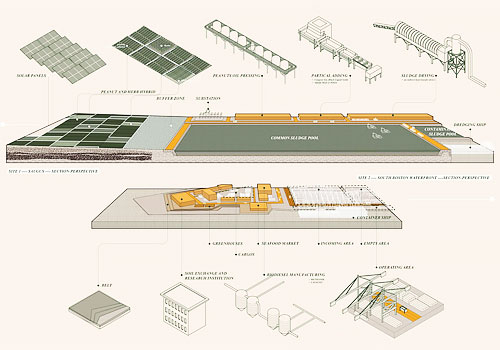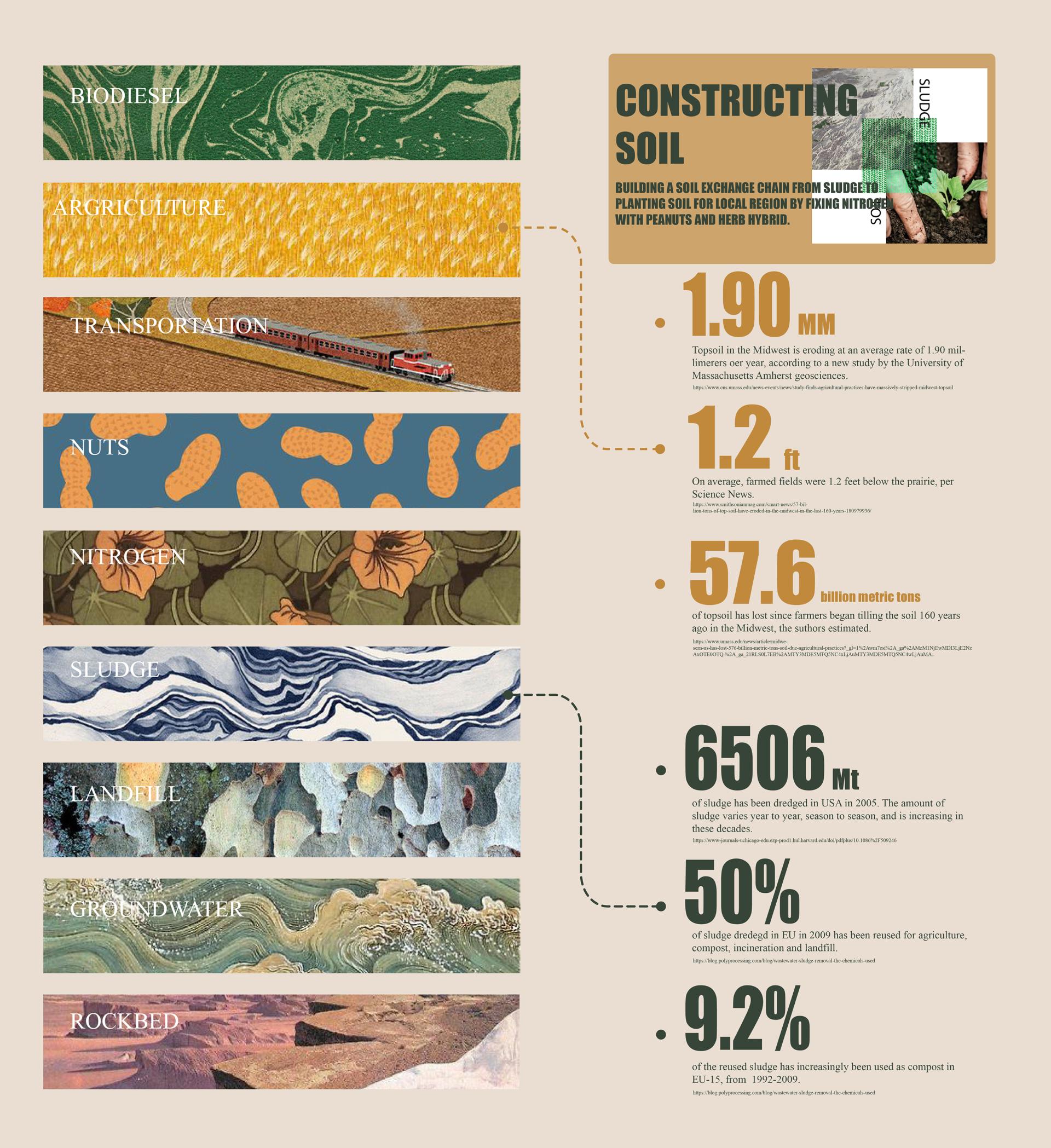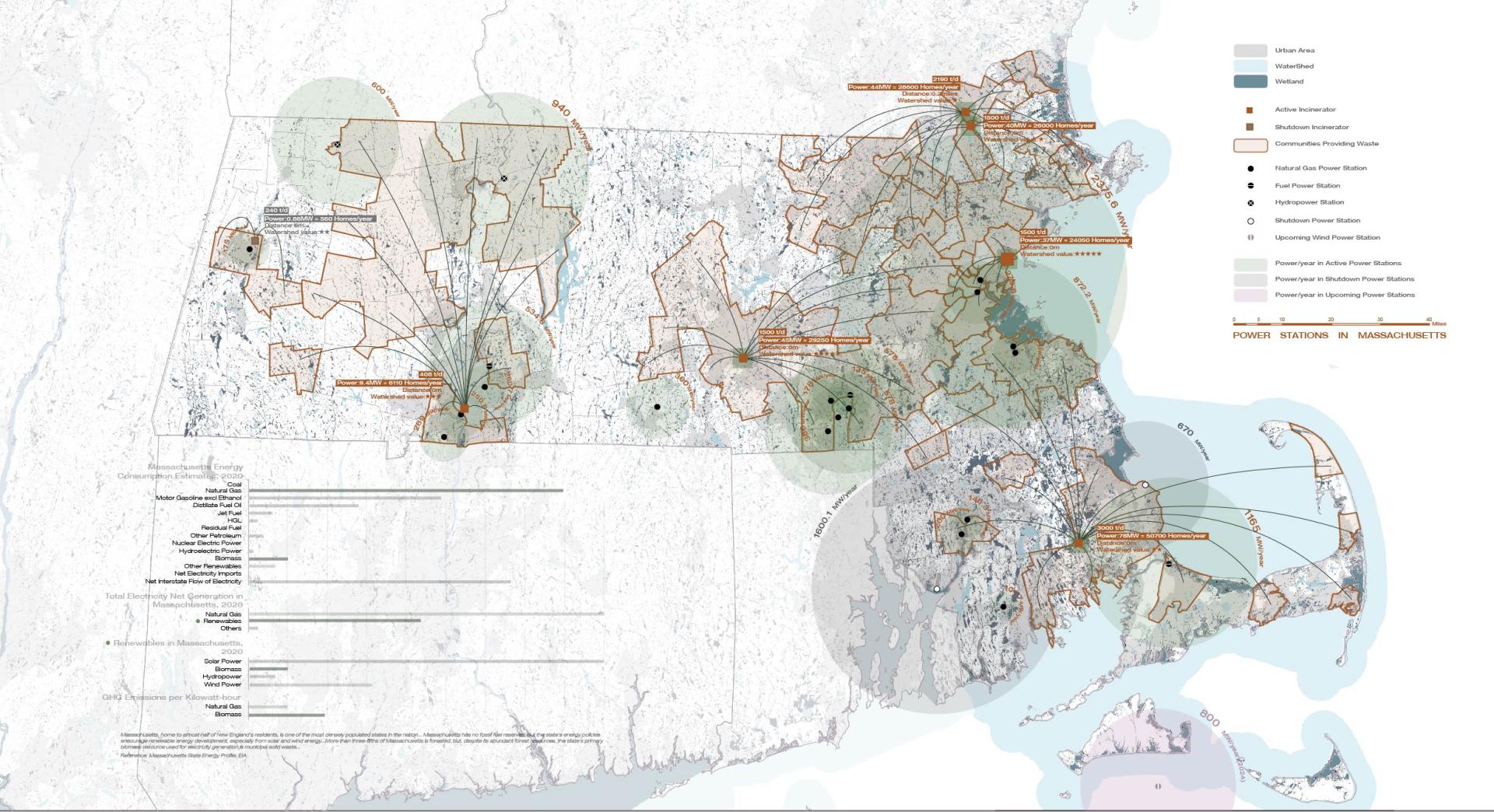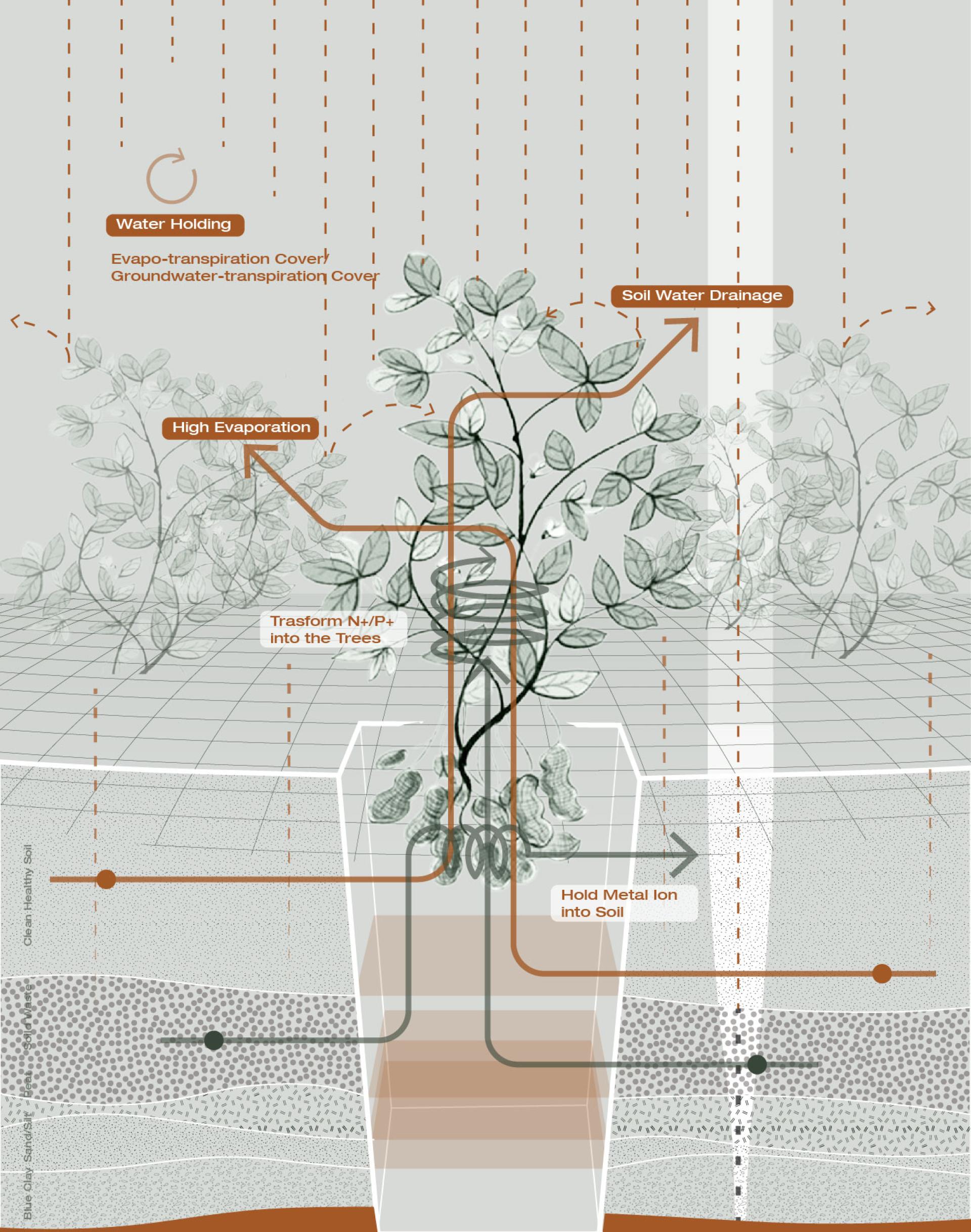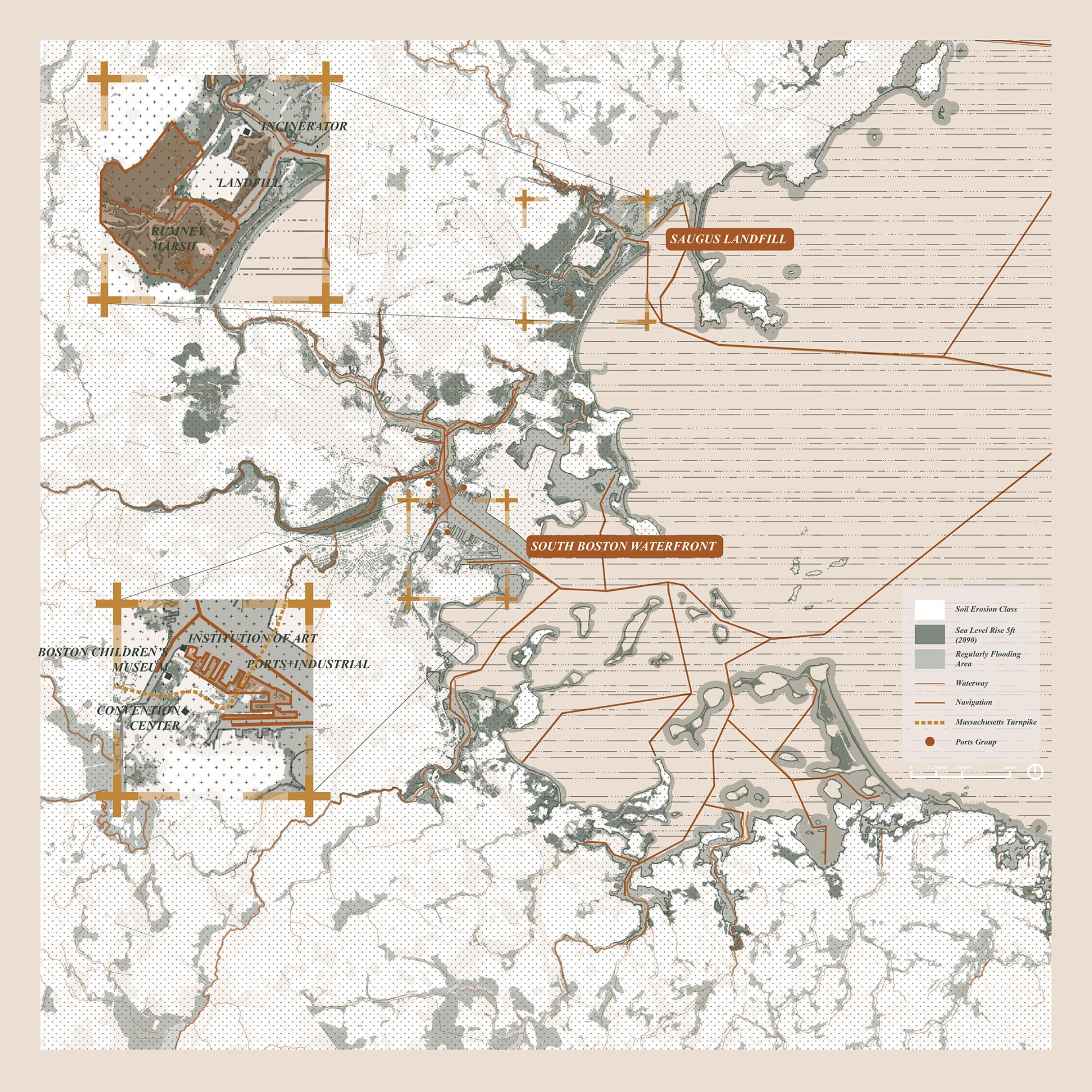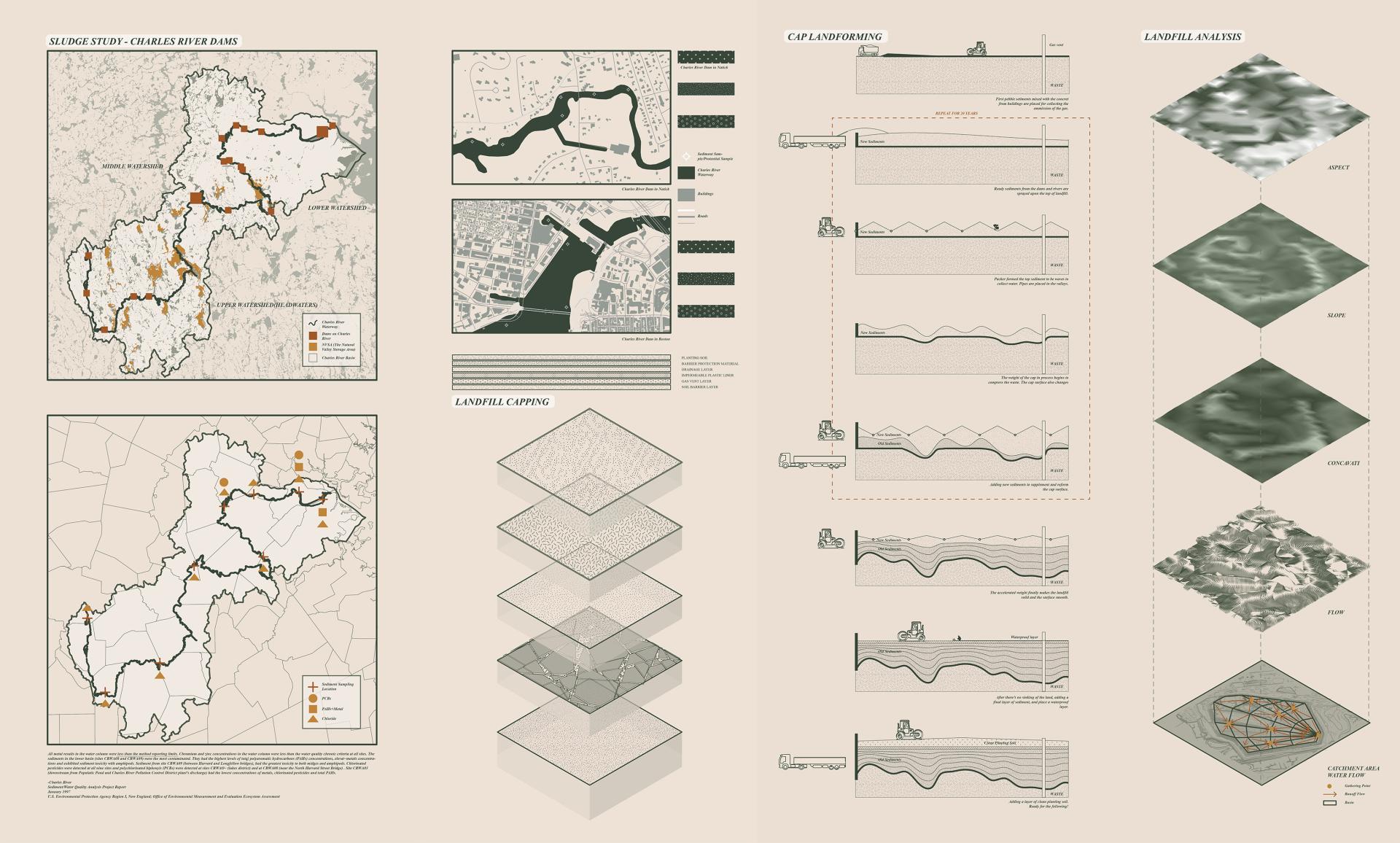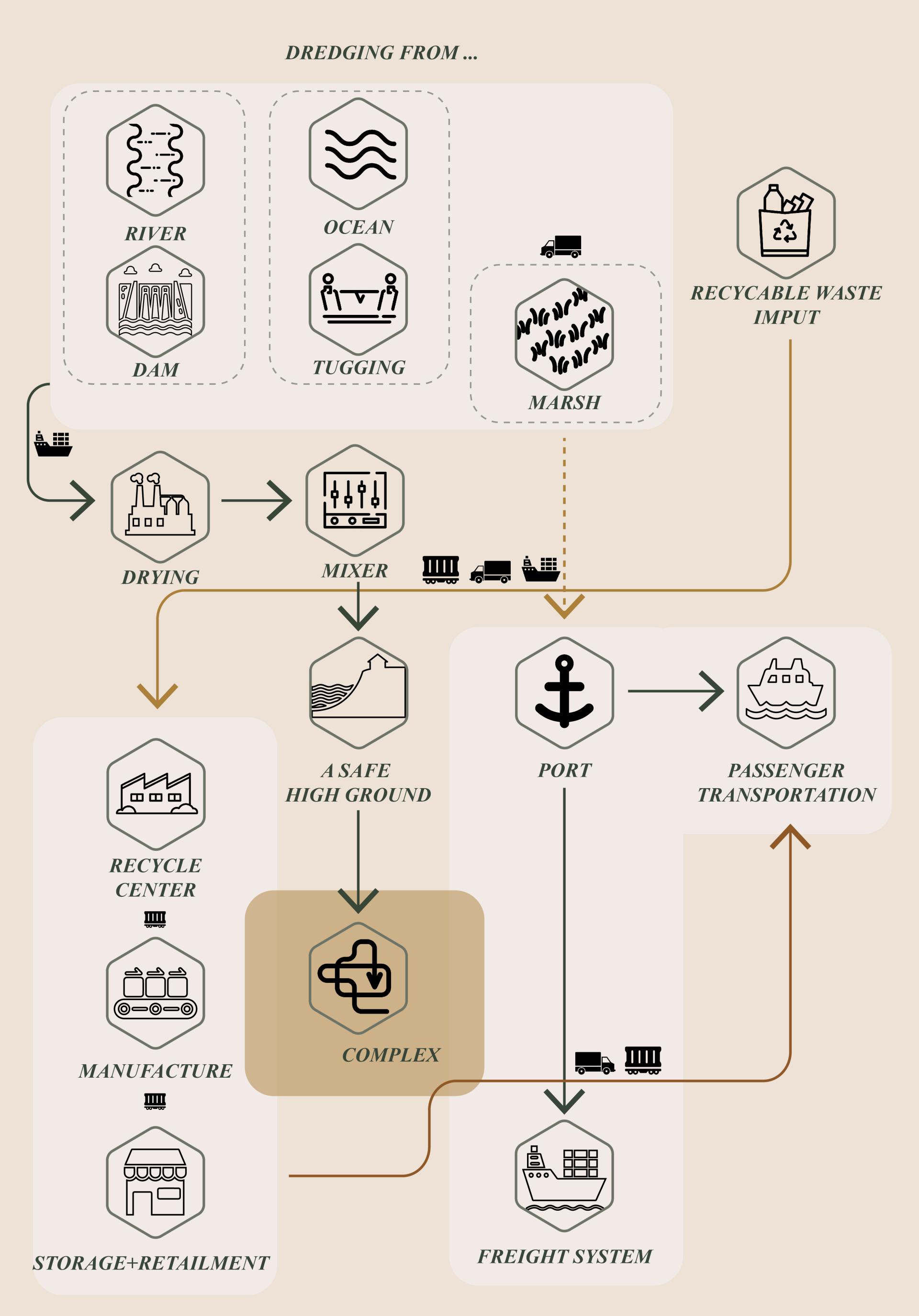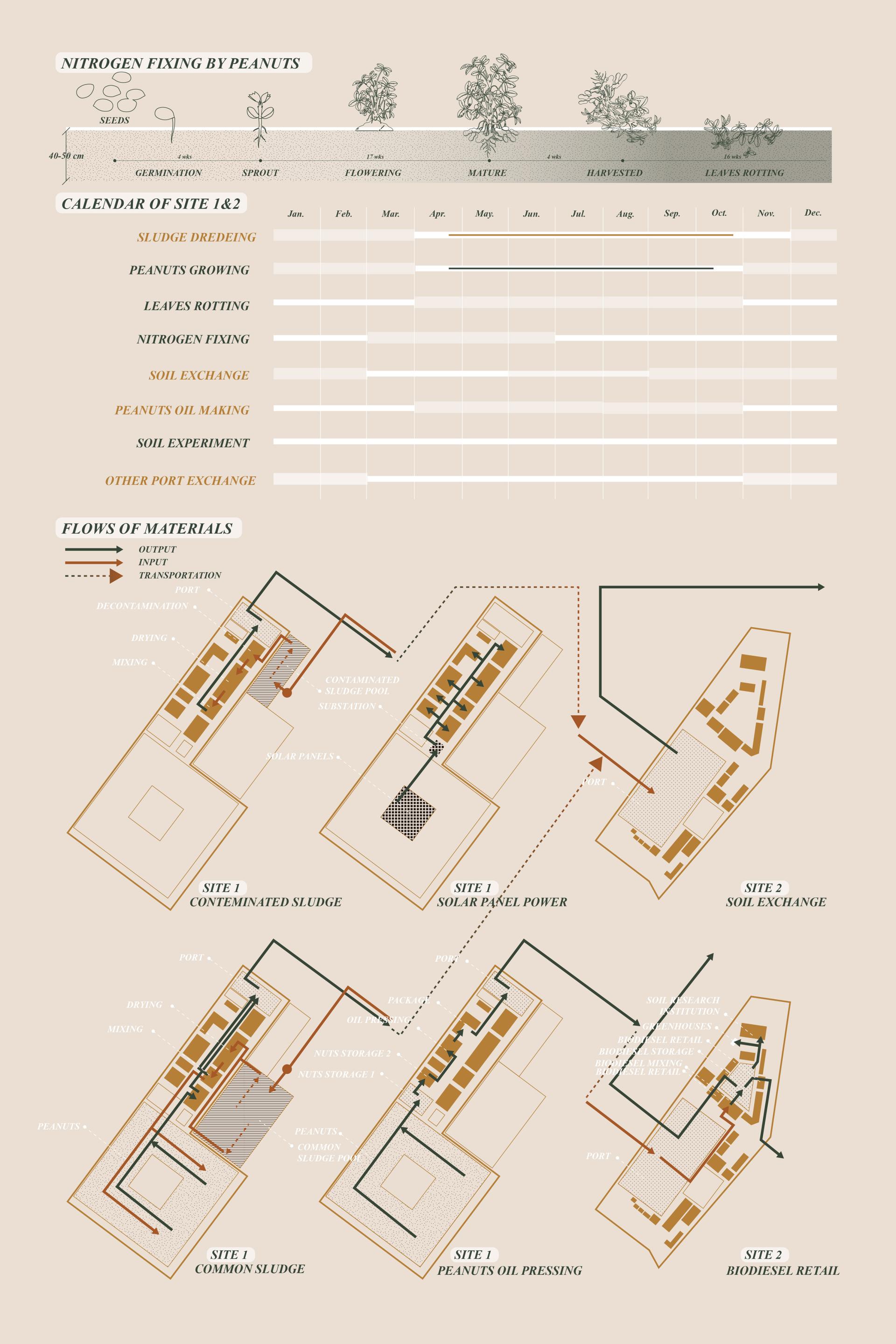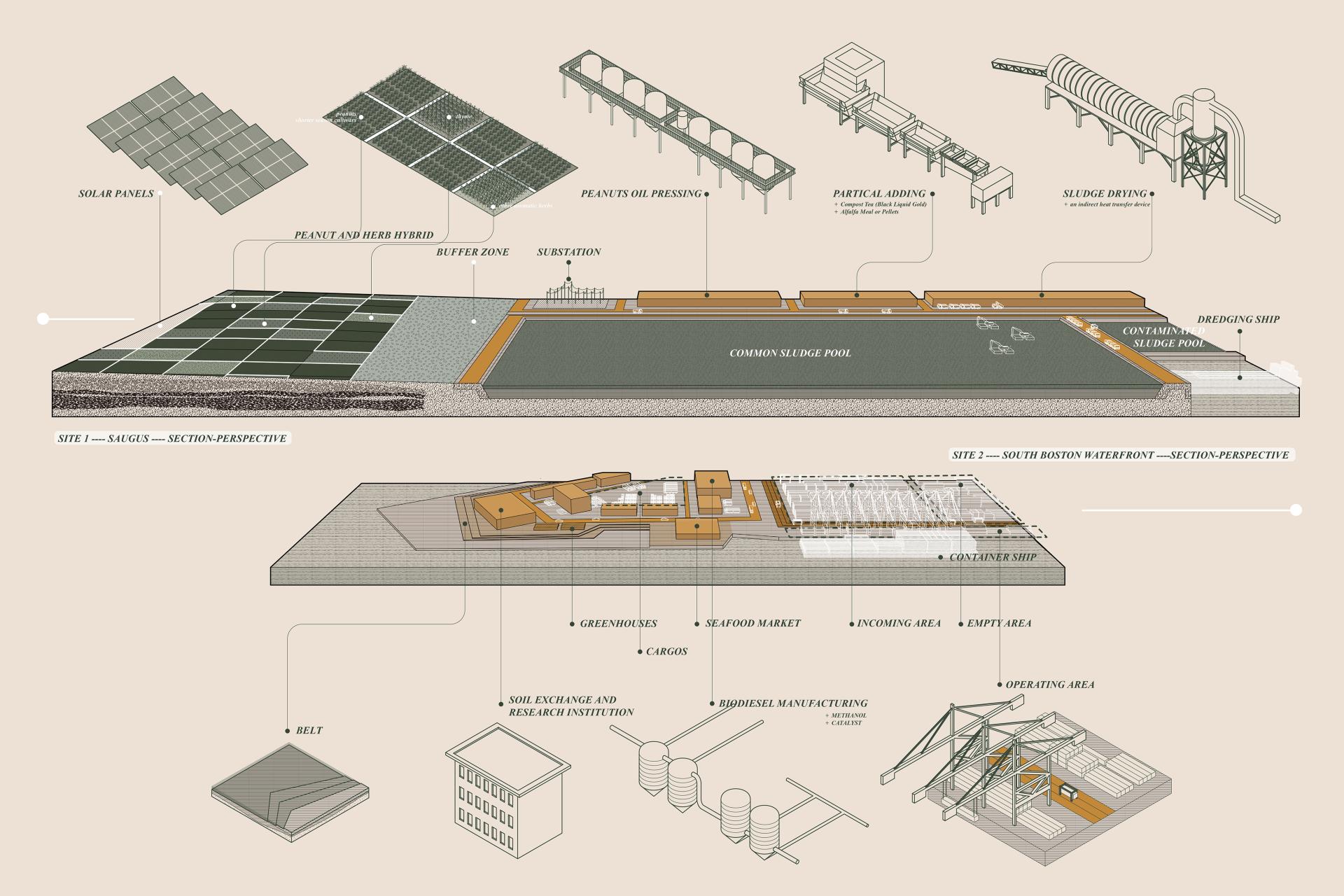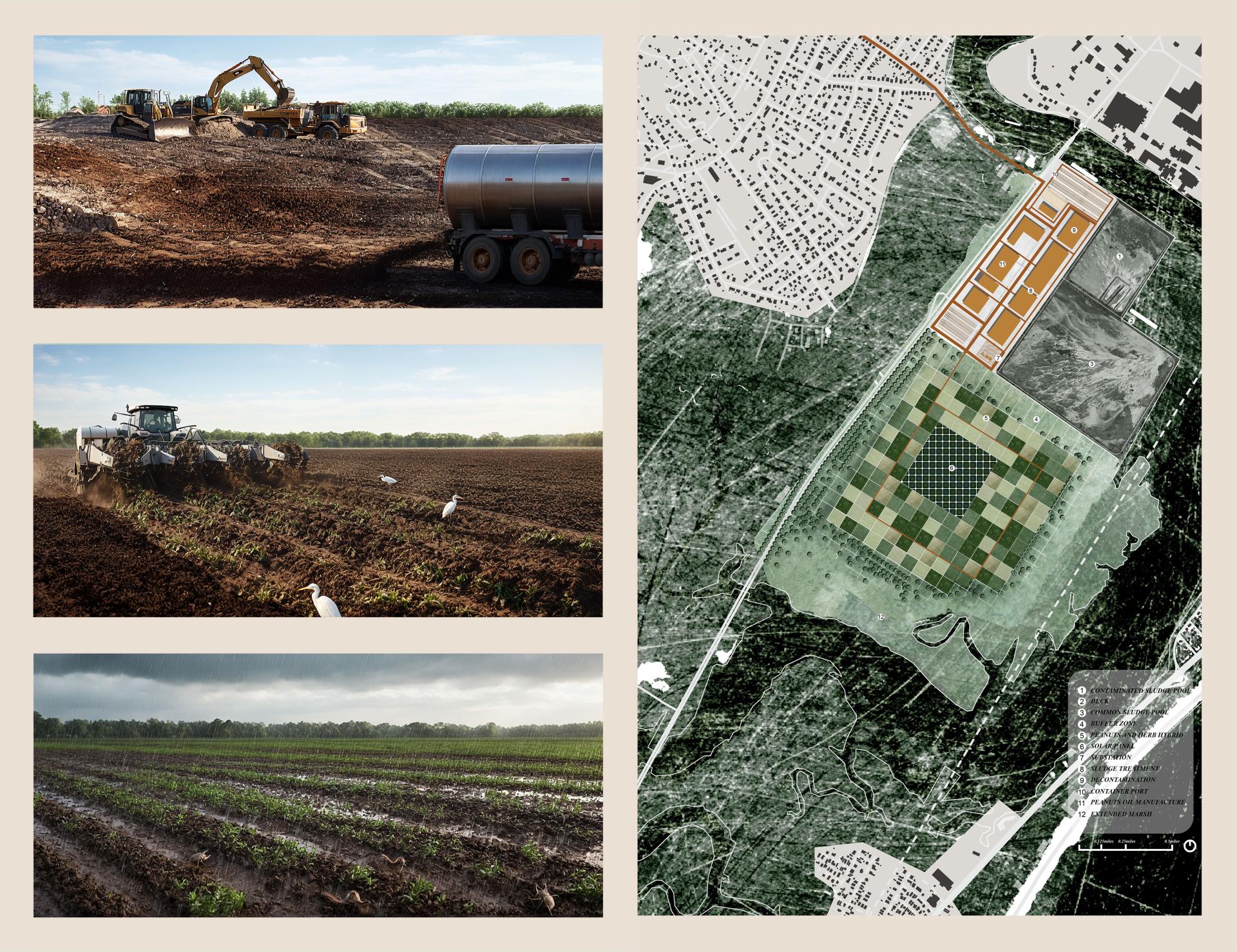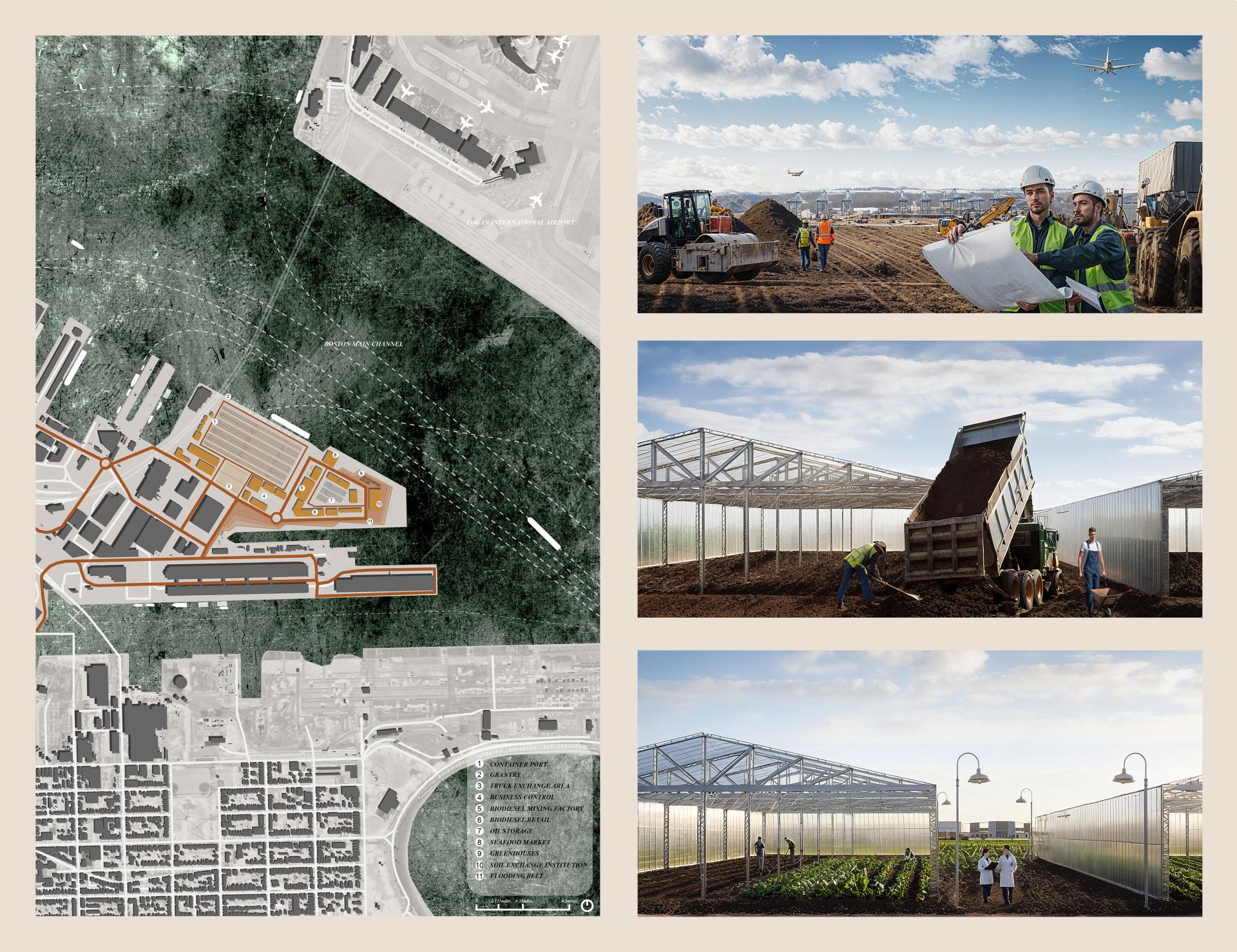2025 | Professional
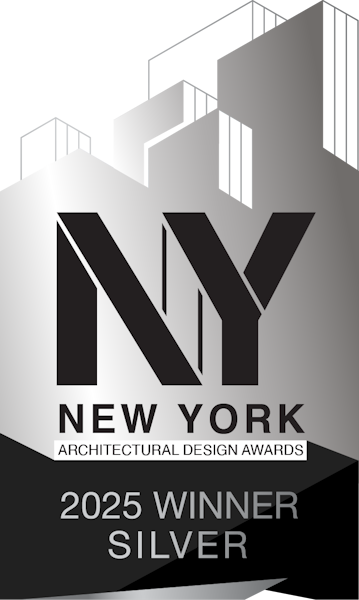
The Soil Factory: Transforming Sludge into a Productive Land
Entrant Company
Senmiao Yang
Category
Landscape Architecture - Concept Design
Client's Name
Country / Region
United States
This concept project reimagines the decommissioned Saugus landfill and incineration site in Boston as a living laboratory for soil regeneration and circular ecology. Each year, thousands of tons of dredged sludge are removed from rivers and bays in Massachusetts, often discarded or relegated to low-value uses. Rather than capping the landfill for passive closure, this proposal transforms it into an active landscape that converts waste into productive soil.
At the heart of the design is a treatment and remediation zone where dredged sediments undergo detoxification and composting. Harmful substances are carefully neutralized and stabilized before any reuse, ensuring that all soil applied on the landfill surface is biologically safe. Once treated, the material is layered across the site’s undulating terrain, reshaping the ground while compressing waste below. Nitrogen-fixing crops such as peanuts are cultivated in this engineered soil, decomposing over time to enrich the substrate without artificial fertilizers. Through these cycles of treatment, planting, and decay, inert land is gradually converted into fertile ground capable of sustaining diverse vegetation.
The system extends beyond the landfill itself. Construction-grade sludge is redirected to vulnerable coastal districts such as South Boston Waterfront, where it is deployed to build protective berms against sea level rise based on its industrialized history. Simultaneously, peanut oil harvested at Saugus is processed into biodiesel, distributed through local networks, and reinvested into the community. Educational facilities and greenhouses on site further position the project as a node for ecological research, public engagement, and knowledge exchange.
By linking waste remediation, soil regeneration, energy production, and climate resilience, the project envisions a closed-loop landscape that reframes industrial brownfields as assets for the future. The Saugus landfill, once a symbol of environmental degradation, becomes an island of regeneration—turning sludge into safe soil, waste into energy, and neglect into resilience.
Credits
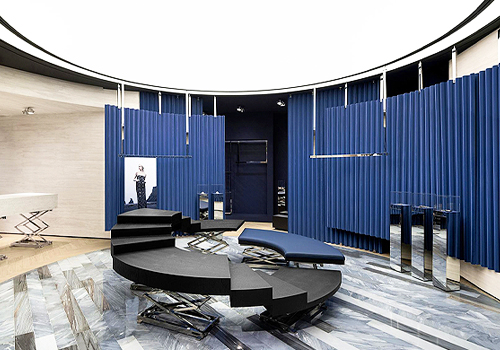
Entrant Company
SLT Design
Category
Interior Design - Retails, Shops, Department Stores & Mall

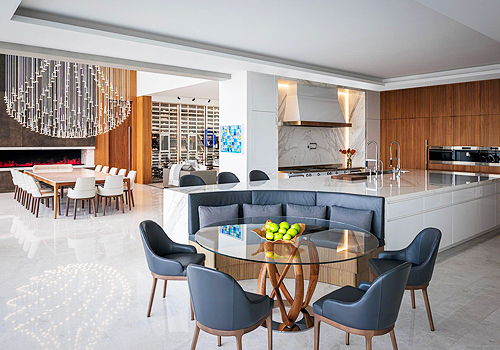
Entrant Company
ITALKRAFT
Category
Interior Design - Kitchen

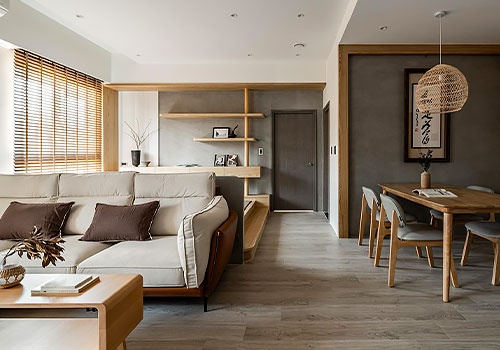
Entrant Company
Makoto Interior Decoration Co., Ltd
Category
Interior Design - Residential

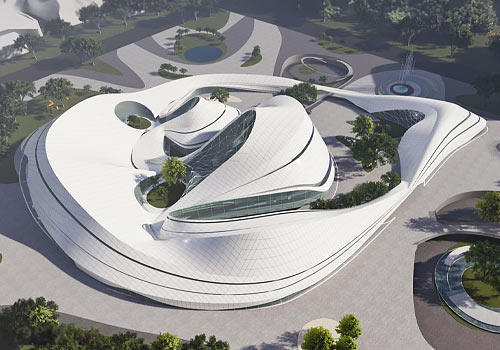
Entrant Company
AmbiWishes Information Technology Co., Ltd. & AmbiWishes Technology Inc.
Category
Cultural Architecture - Landmarks, Symbolic Structures

